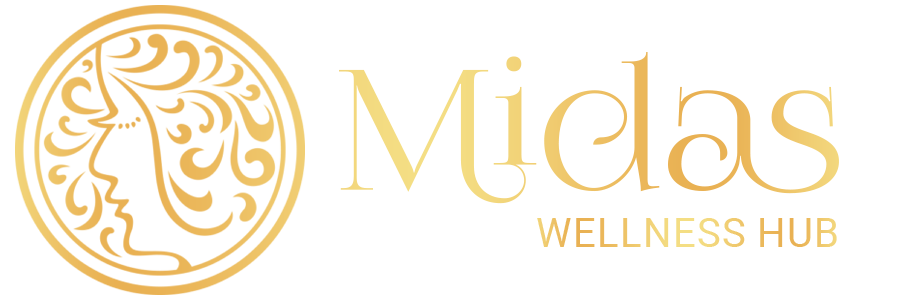
Supplements vs. Food: When to Swallow a Pill and When to Fill Your Plate

16
Apr
Supplements vs. Food: When to Swallow a Pill and When to Fill Your Plate
If you’re someone who tries to eat healthy but still feels off—fatigued, moody, or just not like yourself—you’re not alone. Many of my patients say, “But I eat well, doc! Why do I still feel like this?” The truth is, eating clean doesn’t always mean your body is getting everything it needs. And that’s where the food vs. supplements debate begins.
Let’s talk honestly about what your body actually absorbs, when food is enough, and when you need that little extra boost in capsule form.
First Things First: Food Is Always the Foundation
Supplements are just that—a supplement to your diet. Not a replacement. Whole foods provide not just nutrients, but also fiber, enzymes, antioxidants, and phytochemicals that work synergistically to keep your body in balance.
For example, an orange doesn’t just give you vitamin C. It also provides bioflavonoids that enhance absorption, fiber for gut health, and water to keep you hydrated. No pill can replicate that package completely.
So when possible, always try to get your nutrients from real, whole foods first. But now let’s look at when that might not be enough.
- Vitamin D3: Sunshine Isn’t Always Enough
In an ideal world, 20 minutes of morning sunlight would give you all the vitamin D you need. But modern life gets in the way—especially in cities like Mumbai where we’re indoors most of the day, often wearing sunscreen, and pollution blocks UVB rays.
Low vitamin D is now incredibly common, and it’s linked to fatigue, mood swings, low immunity, hair fall, and even hormonal issues.
When food isn’t enough: Few foods naturally contain enough vitamin D—mostly fatty fish and egg yolks. Even fortified foods can fall short.
When to supplement: If a blood test shows low levels (below 30 ng/mL), supplementation is often necessary. Your doctor can guide dosage—usually weekly or monthly doses depending on severity.
- Omega-3 Fatty Acids: The Anti-Inflammatory Powerhouse

Omega-3s (EPA and DHA) are essential fats that support your brain, heart, skin, joints, and even your mood. But here’s the catch: your body doesn’t produce them—you have to get them from food.
When food isn’t enough: Unless you’re eating fatty fish like salmon, mackerel, or sardines 2–3 times a week, chances are you’re falling short. Vegetarian sources like flax or chia have ALA, but conversion to EPA/DHA is inefficient.
When to supplement: If you’re dealing with inflammation, dry skin, PCOS, mood swings, or cholesterol issues, a good-quality fish oil or algae-based omega-3 can make a real difference.
- Magnesium: The Stress Mineral We’re All Low In
Magnesium is involved in over 300 processes in your body—from muscle relaxation and sleep to blood sugar regulation and PMS relief. But our diets (and soils) are often low in it.
When food isn’t enough: You can get magnesium from leafy greens, nuts, seeds, and legumes. But modern farming depletes soil magnesium levels, and stress, caffeine, and alcohol deplete what little we have.
When to supplement: If you struggle with poor sleep, anxiety, muscle cramps, or constipation, magnesium glycinate or citrate can help. Always consult your doctor before starting, especially if you’re on medications.
- Vitamin C: More Than Just Immunity
We often think of vitamin C only during cold and flu season, but its role goes far beyond that. It’s crucial for collagen production (hello, healthy skin!), iron absorption, and antioxidant protection against daily stress and pollution.
When food isn’t enough: While many fruits and vegetables contain vitamin C, heat and storage can degrade it. Busy lifestyles often mean fewer fresh fruits and veggies on our plates.
When to supplement: If you have frequent infections, poor wound healing, dull skin, or gum issues—your vitamin C levels might be low. A good-quality supplement can help, especially during times of high stress or seasonal changes.
- Vitamin B12: The Energy Vitamin
B12 is vital for nerve function, mood, and energy. It’s mainly found in animal products—so vegetarians and vegans are most at risk of deficiency.
When food isn’t enough: Dairy may provide small amounts, but not always enough to meet your needs, especially if you have poor gut absorption.
When to supplement: A simple blood test can confirm if you’re low. Supplements (or injections) can quickly correct deficiencies and bring energy levels back up.
So, How Do You Know When You Need Supplements?
Here are a few signs your body might be hinting:
- You feel tired despite sleeping well
- You’ve got brain fog or poor concentration
- Your hair and skin look dull or dry
- You get sick often
- You’re moody, anxious, or low
Don’t guess—test. A qualified practitioner can help run basic blood work and assess your symptoms to create a personalized plan.

Quality Over Quantity: Choose Supplements Wisely
Not all supplements are created equal. Go for trusted brands, ideally recommended by your doctor. Avoid megadoses, artificial colors, and fillers. More isn’t always better—sometimes it’s about the right form and combination.
For example:
- Magnesium glycinate is calming; oxide is more laxative.
- Methylated B12 (methylcobalamin) is better absorbed than cyanocobalamin.
Bottom Line: Balance Both Worlds
Think of food as your long-term investment and supplements as short-term support tools. You can’t supplement your way out of a poor diet—but you also can’t always fix everything with food alone.
Your lifestyle, stress, digestion, and even genetics affect how well your body absorbs nutrients. So listen to your body. Honor your plate. And when needed, don’t be afraid to lean on that little bottle.
Because wellness isn’t about extremes. It’s about balance.
—
Need help figuring out what your body is missing? Join our wellness community or book a consultation—we’ll get to the root together.
